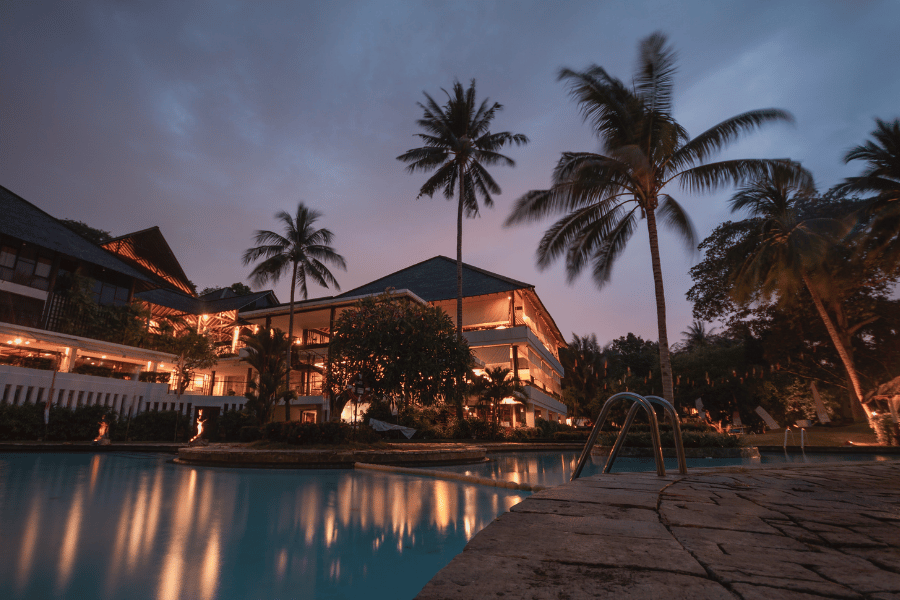
Guide to Hotel Revenue Management: Best Strategies and Tips
Revenue management is crucial for any industry, including the hotel sector. Hoteliers must manage resources effectively and efficiently to maximize profit and stay ahead in a competitive market. Whether you run a small guesthouse or a large hotel, this knowledge can prove invaluable – so we encourage you to continue reading the article, in which we point out the best tips and practices ready for use in the hospitality industry.
Contents
What is hotel revenue management?
Hotel revenue management is a process that involves controlling and optimizing all revenue sources. Among these, revenues from room and meeting room rentals, restaurant services, and ancillary offerings are key. In essence, hotel revenue management ensures that the hotel makes as much money as possible by maximizing sales, optimizing pricing, conducting competitive marketing strategies, and making data-driven business decisions.
As part of hotel revenue management, data analysis plays a key role. Hotel owners and managers need to continuously monitor data on room utilization, number of reservations, pricing, sales performance, and competition in the market. Based on the information gathered, they can change strategies, such as adjusting prices, package deals, or promotions, to attract customers and increase revenues.
Undoubtedly, nowadays, hotel revenue management is increasingly complex due to high competition and the availability of advanced technology. Hotel owners must skillfully analyze data and be familiar with marketing, technology, and customer relations. Therefore, modern technology and revenue management systems can be vital to achieving success and increasing revenue in the hotel industry.

Why is hotel revenue management important?
Hotel revenue management is crucial for several reasons:
1. Increasing revenue at hotel properties
Optimizing a hotel’s processes and resources, such as pricing, distribution, marketing, and package deals, can help increase a property’s revenue and gross operating profit. According to a study by CBRE Group, Inc. in 2021, improvements in hotel revenue management helped increase average gross profit per room by 6.2% compared to 2019.
2. Competitiveness
Competition is intensifying in the hotel industry. Hotel revenue management helps keep prices and offers competitive. According to a study by Google, 80% of people booking hotel accommodations in the US look at more than one website before making a reservation. For lodging owners and managers, this means one thing – the possibility of generating real profits, as long as the offer presented responds to the audience’s real needs and offers benefits more significantly than the competition.
3. Availability and utilization of rooms in a hotel facility
Hotel revenue management allows the hotel to monitor room usage closely, taking measures to increase room availability and maximize occupancy. These issues have become more critical in recent years due to the COVID-19 pandemic and hotel stay restrictions.
4. Understanding customers
Analyzing data related to hotel revenue allows you to understand your customer’s needs and preferences and tailor your offerings to meet their expectations. For example, according to a 2021 Qualtrics survey, 82% of hotel guests believe that a good hotel experience is personalized offerings.
For hotel managers, once owners of guesthouses or other accommodations, this sends a clear message that they should collect as much data as possible on visitors, travel meta search engines, and target them with personalized offers to encourage them to book a stay, revisit the property and take advantage of the services offered.

5. Optimize costs
In addition, the hotel’s revenue management makes it possible to track and optimize costs accurately. For example, a hotel can save on energy costs by using smart lighting and air conditioning management systems. According to a study by JLL, smart property management systems, such as intelligent lighting and HVAC systems, can reduce a hotel’s operating costs by 5-10%.
[Read also: Best travel management solutions]
6. Adapting to a changing market
What’s more, managing the total revenue side of a hotel or other accommodation facility allows it to quickly adapt its offerings and strategies to changing trends and customer needs. For example, according to a survey conducted by McKinsey & Company in 2021, 44% of hotel guests said they would return to tourism activity after a pandemic. As it turns out, however, it was more complex. Indeed, the EIU’s Tourism Outlook 2023 report shows that while global tourism will increase by 30% in 2023, following a 60% increase in 2022, it will still remain below pre-pandemic levels. Moreover, the economic slowdown further influences this market state, with sanctions imposed on Russia and China’s zero-covid strategy.
7. Hotel response to major events
Hotel room revenue and management allow quick decisions to be made in response to changing market factors, such as weather, cultural events, or sporting events. For example, according to a report issued by STR in 2021, on days with major events, the average room rate increased by 23% compared to days without events. Therefore, it’s worth developing a roadmap of events in the area to prepare unique hotel offers early and maximize room rental revenues.
The conclusions are clear – hotel revenue management is vital for a property’s efficient and competitive operation. It allows to increase revenues, maintain competitive prices and offers, understand customers’ needs, and react quickly to changing market factors. However, it is worth remembering that effective hotel revenue management requires specialized tools and the involvement of the entire team of employees in the process.

What is the difference between hotel revenue management and yield management?
Hotel revenue management and performance management are closely related concepts but differ. Hotel revenue management is a strategic approach that optimizes a hotel’s pricing, inventory, and distribution channels to maximize revenue.
On the other hand, yield management is a more tactical approach that focuses on managing pricing and room occupancy at a property to maximize revenue in the short term.
One of the main differences between hotel revenue management and yield management is their time horizon. Revenue management takes a long-term view and involves:
- Forecasting demand.
- Setting pricing and inventory levels.
- Developing distribution strategies that align with the hotel’s overall business goals.
Besides, yield management is more focused on optimizing revenue in the short term by adjusting individual room pricing and occupancy based on current market conditions.
Another difference between the two concepts is their scope. For example, revenue management involves multiple hotel departments, including sales, marketing, and operations. On the other hand, yield management is more focused on managing pricing and inventory within a single department, such as rooms.

It is worth adding, however, that both revenue management and yield management require decision-making based on solid data and analysis. Revenue specialists should use sophisticated software and analytical tools in their daily work to monitor market data, forecast demand, and set prices and inventory levels.
On the other hand, yield management also needs up-to-date data to make real-time pricing decisions based on current market conditions. Indeed, it must be remembered that yield management is based on hotels having a finite number of time-limited rooms, and different travelers are willing to pay different prices for the same room. Yield management can therefore help shape guests’ booking behavior. For example, a property with many available rooms can lower costs or offer an additional food and beverage package to get more bookings.
Although hotel revenue and yield management are closely related, they differ significantly in their time horizons, scope, and analytical approach. Revenue management is a strategic approach that involves multiple departments and takes a long-term view, while yield management is a more tactical approach focused on short-term price and capacity optimization within a single department.
[Read also: How To Build Travel Meta Search Engine: A Step-By-Step Guide]

The best hotel revenue management strategy
Revenue management in hotels is a key aspect that affects the success and profitability of a hotel business. With increasing market competition, it is necessary to apply effective strategies to increase revenue and keep it stable. A good revenue management strategy for a hotel should cover a wide range of activities, including market and competitive analysis, optimal pricing policy determination, skillful room availability management, and effective hotel promotion. In this context, various factors such as seasonality, market trends, and customer preferences and expectations should also be considered to optimize the hotel’s revenue and increase its profitability. Besides important are:
1. Market segmentation
Hotels may efficiently adjust their products to the needs and tastes of various consumer groups by using the key instrument of market segmentation. By segmenting their customer base, hotels may better understand their client’s wants and expectations and adapt their offerings accordingly. This is crucial given the escalating rivalry in market segments in the hotel industry and the rising need for individualized services from clients.
According to a study by Deloitte, market segmentation is one of the essential tools that allow hotels to optimize revenues and increase business profitability. According to this research, hotels that use market segmentation achieve 6.5% higher average room rates than hotels that do not use this strategy. In addition, segmentation allows hotels to make better use of resources, such as room or staff availability, which improves business efficiency.
However, successful revenue management strategies must be effectively implemented and adapted to the hotel’s market and customer needs. Depending on the hotel’s location and target audience, various segmentation criteria can be used, including age, gender, destination, and lifestyle preferences. Therefore, to achieve optimal results, hotels should conduct regular market research and analyze data to adjust their offerings continuously and meet their customers’ changing needs.
Every property owner should remember that market segmentation is a powerful tool that hotels can use to stay ahead of the competition and attract and retain customers. By understanding their customers’ needs and preferences, hotels can tailor their services, improve efficiency, and ultimately increase profitability.

2. Hotel demand forecasting
Demand forecasting in hotels is a crucial strategy for revenue optimization. By using historical data and market trends, hotels can estimate future demand and adjust their pricing and marketing strategies accordingly. This allows them to maximize their revenue potential while ensuring that they are offering competitive prices that reflect the market demand.
According to a report by Research and Markets, the global hotel market size was valued at $594.3 billion in 2020 and is expected to reach $958.4 billion by 2028. With such a large market size, demand forecasting becomes even more important for hotels to stay competitive and profitable. By accurately forecasting demand, hotels can optimize their revenue by adjusting room rates, inventory, and marketing efforts to attract more customers.
Furthermore, demand forecasting helps hotels identify periods of high and low demand throughout the year. This allows them to offer different pricing and promotional strategies based on seasonality, events, or other factors that may affect demand. For instance, during peak periods, hotels may increase room rates to maximize revenue, while during off-peak periods, they may offer discounted rates or special packages to attract more customers. By analyzing and predicting demand, hotels can make informed decisions that drive revenue growth and customer satisfaction.
3. Price optimization
Price optimization is a critical component of a successful revenue management strategy for hotels. It involves setting prices for hotel rooms based on factors such as demand, seasonality, competition, and customer behavior. Effective price optimization can help hotels maximize their revenue by charging the optimal price for each room based on the above factors. The goal is to find the sweet spot where prices are not too high to turn off customers but not too low to leave money on the table. A study by Duetto Research found that hotels using price optimization strategies saw a 5.5% increase in revenue per available room (RevPAR) compared to those that did not use such methods.
Dynamic pricing is a well-liked method of price optimization that involves instantly changing hotel rates in response to demand and other variables. This enables hotels to optimize earnings during times of high demand and reduce losses during times of low need. For instance, a hotel might raise its room rates during a well-attended event nearby to capitalize on the increased demand. On the other hand, the hotel can cut its room rates to draw in more guests during an idle period. In the United States, 54% of hotels utilize dynamic pricing and those who do have an average revenue boost of 7.6%, according to a Cornell Center for Hospitality Research survey.

4. Inventory management
Because hotel inventory is perishable, any unsold rooms on a night cannot be sold the following day. Therefore, to increase income, hotels must effectively manage their inventory. Maintaining the proper balance of inventory levels to fulfill demand without overstocking or understocking is essential. In addition, hotels must accurately forecast the market and possess the required resources to make data-driven decisions.
Besides room occupancy, one of the key aspects of inventory management in hotels is the management of food and beverage inventory. Food and beverage costs can account for a significant portion of a hotel’s expenses, and effective inventory management can help hotels minimize waste, reduce costs, and increase profitability. This involves monitoring food and beverage consumption, ordering the right amount of inventory based on demand, and managing inventory levels to prevent spoilage. According to a report by the National Restaurant Association, food, and beverage costs account for an average of 30% of a hotel’s total operating expenses. Therefore, hotels can significantly impact their bottom line by optimizing inventory management in this area.
Tips for hotel revenue management
Effective revenue management is a key element for hotels and other lodging facilities. This is because, with efficient revenue management strategies, it is possible to maximize profits and remain competitive in the industry. Here are some tips on how to effectively manage revenue in hospitality:
Use data-driven insights
Using data-driven insights in revenue management is essential for any successful hotel. Revenue management involves analyzing multiple data points to make informed pricing, inventory, and demand forecasting decisions. Using data and modern systems to analyze it, hoteliers can increase revenue, optimize profits and stay ahead of the competition. What else?
Analyzing customer behavior
Data-driven revenue management allows hotels to gain valuable insights into customer behavior and preferences. By analyzing historical and real-time data, accommodations of all kinds can identify trends and patterns that can influence pricing strategies, marketing campaigns, and inventory management. This data can help hoteliers make informed decisions about room rates, promotions, and package deals tailored to their target market’s specific needs and preferences. This, in turn, can lead to increased customer satisfaction, loyalty, and repeat bookings.
Optimizing revenue streams
Second, data-driven revenue management enables hotels to optimize revenue streams and maximize profits. By analyzing demand patterns, hotels can adjust their pricing and inventory strategies to ensure they sell the right product to the right customer at the right time. This can result in higher occupancy rates, increased revenue per available room (RevPAR), and improved profitability. With the help of advanced revenue management tools and algorithms, hotels can forecast demand, set pricing strategies, and adjust inventory levels in real-time to capture the maximum revenue potential from each booking.
Increasing competitive advantage
Third, data-driven revenue management can help hotels stay ahead of the competition. By analyzing market trends and competitors’ pricing strategies, hotels can make informed decisions about their bidding and inventory strategies. This allows hotels to respond quickly to changing market conditions and remain competitive in a crowded market. By leveraging insights and data-driven technology, hotels can gain a competitive advantage and achieve long-term success in an ever-evolving industry.

2. Set clear KPIs
Establishing clear KPIs (key performance indicators) is another critical element of hotel revenue management. KPIs are metrics that help you understand how well the hotel is meeting its business goals and what steps need to be taken to achieve success. By doing so, establishing the right KPIs allows you to monitor and control essential activities such as:
Hotel occupancy
This indicator measures the percentage of occupied hotel rooms in relation to the total number of rooms in a facility. Hotel occupancy is one of the most important indicators of business performance because it is difficult to achieve maximum profits without an adequate occupancy level. However, it is worth noting that hotel occupancy rates can be seasonal, and business targets should be adjusted depending on this.
Average room rates
This indicator measures the average price per night at a hotel. Average room rates are essential from a financial planning point of view, as they affect hotel revenues. Therefore, hotel managers should monitor market trends and adjust prices to maximize gross operating profit per call.
Utilization rates for ancillary services
This term should include indicators such as the average value of orders at the restaurant, spa, parking lot, or other ancillary services the hotel offers. These indicators allow you to assess how well additional services are used and what measures can be taken to expand the offer and match it to market expectations.
Guest satisfaction indicators
This is a crucial indicator that measures how satisfied guests are with their stay at the hotel. In addition, this indicator is essential for financial planning, as guests who are satisfied with their stay are more likely to return in the future and recommend it to others. Therefore, hotel managers should regularly collect guest feedback and adjust offerings to increase customer satisfaction.

The average length of stay
This indicator measures the average length of stay of guests at a hotel. The average length of stay affects the hotel’s revenue and can be adjusted according to the tourism seasonality.
1. KPIs and hotel profits
One of the most important benefits of setting KPIs is the real translation into profits. It is estimated that hotels that focus on monitoring KPIs and adjusting their strategies can expect to increase profits by 20-30%. In addition, by getting KPIs right and managing them effectively, hotel managers can react faster to market changes and make better decisions that yield higher profits.
2. KPIs and increased operational efficiency
Another benefit of KPIs is that they allow the hotel to increase operational efficiency. By monitoring key indicators, such as average room rates, hotel occupancy, and operating costs, hotel managers can identify areas where improvements can be made and costs reduced. As a result of this process, hotels and other accommodations can increase their operational efficiency and improve profitability. In addition, using KPIs, hotel managers can monitor performance against competitors and adjust strategies to improve market positioning.
3. KPIs and hotel facility business planning
Planning the operations of a hotel property is crucial to achieving success and maximizing revenue. A key element in this process is to establish appropriate KPIs and monitor them on an ongoing basis. KPIs allow you to control critical business performance indicators, such as hotel occupancy rates, average room rates, guest satisfaction rates, as well as ancillary service utilization rates.
With KPIs, hotel managers can monitor performance continuously, compare it to business goals, and make necessary changes. For example, if the hotel’s occupancy rate declines, managers may introduce promotions and special offers to attract customers. Likewise, if guest satisfaction rates are low, managers can change service offerings to improve quality and increase customer satisfaction.
4. KPIs versus budgeting and planning hotel finances
KPIs are also essential in the hotel’s budgeting and financial planning process. Based on historical data and market trends, hotel managers can predict future economic performance and set business targets for future periods. This way, KPIs form the basis for the hotel’s decision-making and action-planning process.
In conclusion, setting clear KPIs is essential to the hotel’s revenue management process. It allows hotels to increase profits, improve operational efficiency, and adapt their strategies to changing market conditions. In 2023, hotels that focus on monitoring KPIs and managing them effectively will be able to achieve greater profitability and gain a competitive edge.

3. Optimize distribution channels
Distribution channels play a crucial role in hotels’ success, enabling them to reach a wider audience and generate more revenue. To optimize these channels, hoteliers can leverage technologies such as channel management, direct booking, booking engines, hotel booking engines, and inventory management systems. This way, they can improve their distribution strategies, maximize revenues and streamline operations.
According to the latest data, the global hotel industry is expected to grow from $602.23 billion in 2021 to $702.74 billion in 2023, with a compound annual growth rate of 4.3%. To capitalize on this growth, hotels must adopt effective distribution strategies to reach a larger audience and increase bookings.
Channel management systems
One key strategy is to use a channel management system that allows hotels to manage their room inventory across multiple online travel agencies (OTAs) and other distribution channels. This will enable hotels to sell their rooms across more channels, increase brand visibility and optimize revenue.
Direct bookings
Another vital strategy for hotels is to encourage direct bookings. In 2021, direct bookings accounted for about 49% of all hotel bookings, expected to continue in the coming years.
By offering incentives such as loyalty programs, personalized experiences, and discounts, hotels can encourage guests to book directly and reduce their reliance on OTAs. In addition, by investing in inventory management systems, hotels can ensure that their rooms are always available and easy to book, reducing the risk of overbooking and missed opportunities.
Inventory management
Inventory management is another of the key components of hotel operations and distribution channels. Using technology to optimize inventory, lodging facilities can increase revenue, streamline processes and stay ahead of the competition. However, to capitalize on these opportunities, hotels must optimize their distribution channels and ensure their inventory is always available and quickly reserved.
Inventory management systems allow hotels to manage their room inventory across multiple channels, including their website, online travel agencies (OTAs), and other distribution channels. As a result, hotels can reduce the risk of overbooking and missed opportunities by centralizing their inventory. In addition, asset management systems provide hotels with real-time data and analysis, allowing them to make data-driven decisions and adjust their strategies accordingly.
Hotels must continuously optimize distribution channels to maximize revenue and develop their full potential. Using technologies such as channel management, direct bookings, and inventory management systems, hotels can improve the promotion and sales strategies they have used to date, increase brand visibility online, and streamline operations for managing the entire property. With the hospitality industry set to grow in the coming years, hotels must stay ahead of the curve and leverage modern technology for success.
[Read also: How to Choose the Best Travel Agency Software to Maximize Your Revenue]

4. Use hotel revenue management software
Hotel revenue management software is indispensable for any resort owner who wants to maximize his profits and maintain high guest satisfaction. With this strategy, we can accurately monitor revenue from individual rooms, restaurants, or ancillary services.
The benefits of using hotel revenue management software are numerous. First of all, it allows for better cost control and revenue optimization. In addition, these systems make it possible to accurately determine the price of a stay depending on the day of the week, the season, or special events, such as concerts or festivals.
Besides, hotel revenue management systems make managing reservations and room availability easy, which translates into increased guest satisfaction. This lets you respond more quickly to customers’ needs and offer them better service.
Equally important, the software allows you to automate many of the processes involved in hotel management, such as invoicing and reporting. This can save time and avoid human error.
It is also worth mentioning that hotel revenue management systems allow you to accurately analyze data on revenue, costs, or guest preferences. This will enable you to understand the needs and requirements of guests better and adjust the hotel’s offer to their needs.
Without a doubt, the hotel software market is proliferating. According to a Future Market Insights report, the value of the global hotel revenue management software market is expected to grow from $8.9 billion in 2022 to $13.8 billion in 2031, an increase of about $4.9 billion over nine years.
Nowadays, hotel guests are demanding more and more, and their demands and needs are changing. This is why hotels need to be able to meet these challenges and offer the best services to their guests. Hotel revenue management software is one of the key elements that help achieve this goal.
5. Implement pricing strategies
Implementing pricing strategies is one of the best ways to manage revenue in the hotel industry. A dynamic pricing strategy allows you to adjust prices according to the current market situation and customer behavior. Implementing this strategy enables you to increase profits and better utilize hotel resources.
An example of implementing a dynamic pricing strategy in hotels is the variation of prices depending on the season, day of the week, holidays, or special occasions. For example, on weekdays, prices are lower than on weekends, and in the summer season, prices are higher than in the winter. In addition, the price may change depending on demand and the level of customer interest in the hotel.
Implementing a dynamic pricing strategy in hotels brings many benefits to revenue management:
- It allows you to increase revenue, achieving the optimal price per room and expanding the hotel’s bottom line.
- It enables better utilization of hotel resources, adjusting prices according to the current market situation and customer interest.
- It enhances the hotel’s competitiveness in the market, allowing it to adapt perfectly to customers’ expectations and respond more quickly to changing trends and market situations.
What lies ahead for the hospitality industry in the next few years?
Effective revenue management is critical to the success of any hotel business – this statement is beyond dispute. By implementing the right strategies and techniques, hotels can increase their revenues, improve occupancy rates and ultimately achieve long-term profitability.
Looking ahead to 2023 and beyond, we can expect continued innovation and technological advances in revenue management. For example, artificial intelligence and machine learning algorithms will become even more prevalent, allowing hotels to forecast demand and adjust pricing strategies more accurately.
In addition, we can also expect rapid adoption of dynamic pricing strategies, which involve adjusting room rates in real-time based on demand and other factors. This approach has already proven successful in the airline industry and is likely to become more common in the hotel industry as well.
Beyond this, it is also crucial for hotels to continue to focus on providing excellent customer service and guest experiences. By understanding and meeting customer needs, hotels can build solid relationships and increase the likelihood of repeat bookings and positive reviews.
In short, the future of hotel revenue management looks promising, with great opportunities for growth and success. With information and practical strategies, hotels can ensure their long-term profitability and continued success in digital transformation in the years to come.
Related Posts
We are Stratoflow, a custom travel software development company. We firmly believe that software craftsmanship, collaboration and effective communication is key in delivering complex software projects. This allows us to build advanced high-performance Java applications capable of processing vast amounts of data in a short time. We also provide our clients with an option to outsource and hire Java developers to extend their teams with experienced professionals. As a result, our Java software development services contribute to our clients’ business growth. We specialize in building bespoke travel solutions like fast search engines, metasearch engines, booking engine services or channel manager integrations.